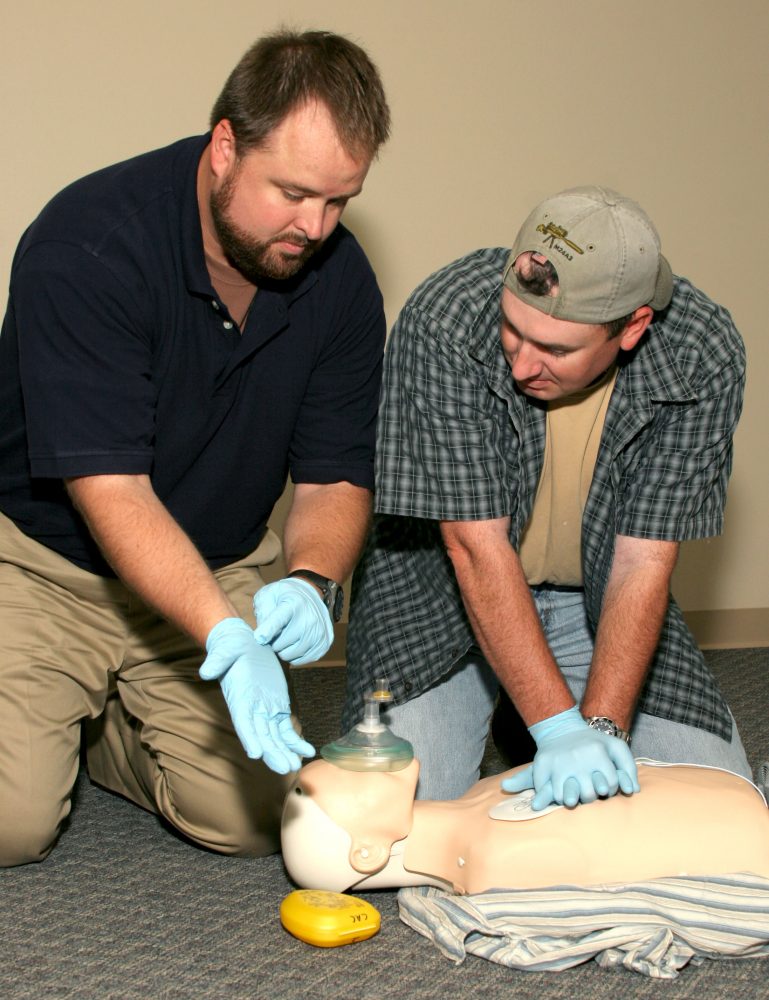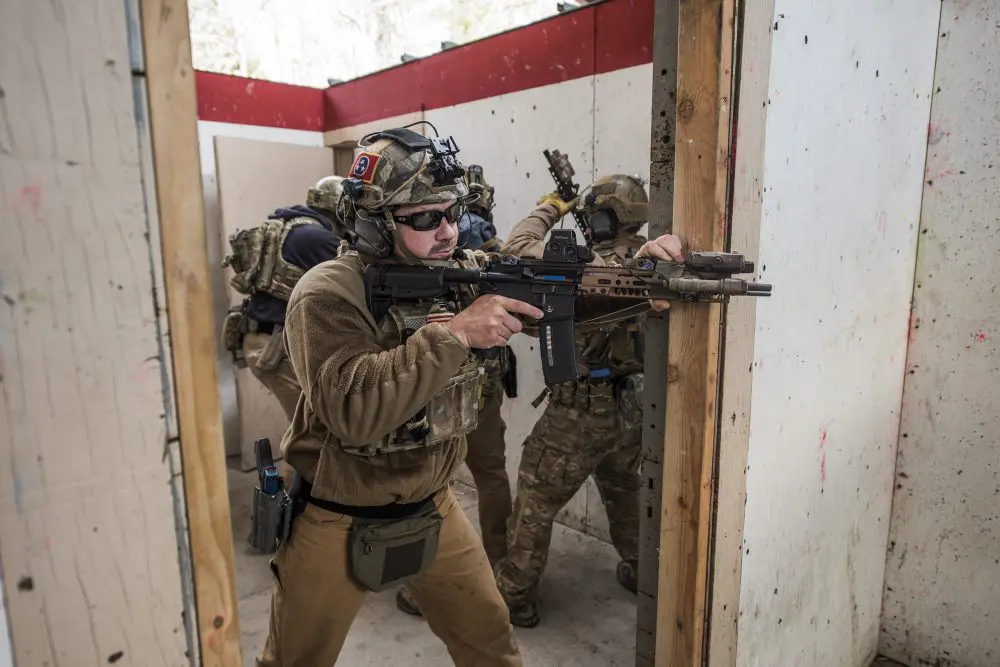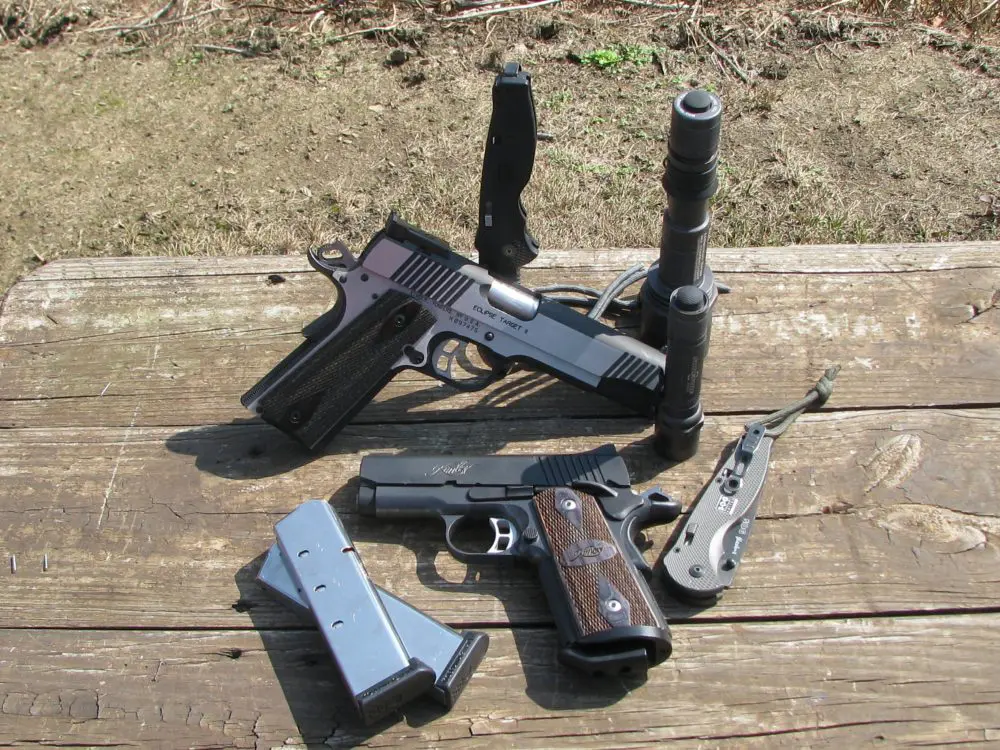Preparedness is not a hobby practiced by the lunatic fringe in advance of a zombie apocalypse or biblical end times. Preparedness is a sensible lifestyle choice for anyone who wants to survive the array of natural disasters that strike the United States every year. 2017 was particularly brutal, with devastating wildfires over several Western states, including the December wildfires in southern California, plus three killer hurricanes—Harvey, Irma, and Nate—that caused flooding over many Southern states, and tornados and ice storms resulting in widespread damage and power outages in various parts of the country. I lived through one of these major disasters, which put my plans and preparations to the test. Here’s what I learned.
Table of Contents
IRMA WAS NO LADY
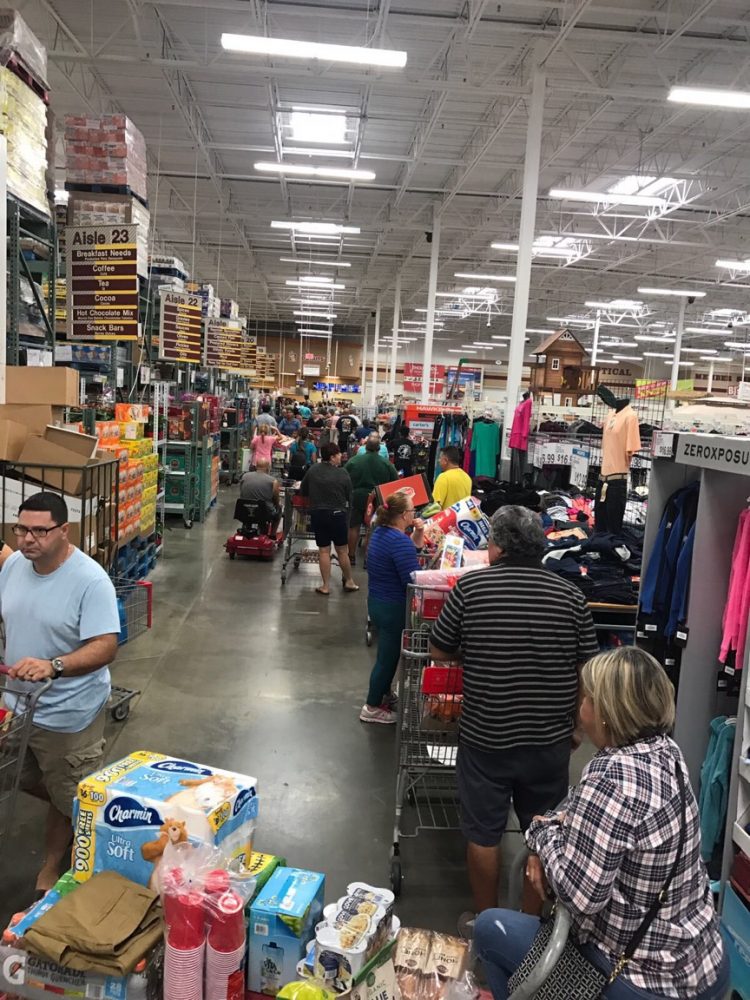
As it turns out, Irma was a killer storm. It showed no mercy and took no prisoners. The unofficial death toll in Florida exceeded 70. For a while it seemed as if Irma could be the storm that would finally wipe south Florida off the map.
But Irma’s path veered to the west, and heavily populated Miami-Dade, Broward, and Palm Beach counties avoided a direct strike. The Florida Keys were not as lucky. South Florida got lots of rain, considerable wind damage, and a power outage that, for many, would last for well over a week, but all in all, it could have been much worse.
In the aftermath, there were many examples of the prepared, the underprepared, and the totally unprepared. There were also many lessons to be learned from the experience. After all, no matter how good your preparations and plans are, there will always be ample room for improvement if you’re paying attention. This is especially true during an actual disaster.
Many of these lessons are not unique to tropical storms and can be applied to many other disaster situations. If there was anything positive to come from Hurricane Irma, it was the very loud wake-up call that many people
got.
I found the examples below to be particularly interesting. You may consider them insights to add to your survival tool box, or confirmation of things you already know. They are all powerful reminders that we must always be prepared and can never let our guard down.
SECURITY
Security is, and will always be, a top priority. This is especially true during a disaster. Maintaining a high level of situational awareness and security in the aftermath of a crisis is never easy.
For starters, the lack of electricity will likely disable your home security systems. Additionally, after a storm you will likely find yourself overwhelmed with a multitude of physical work, including clearing debris, making repairs, and attending to generators or other equipment you may be using.
All of this increases your vulnerabilities and exposure points. But in spite of all the challenges, finding effective ways to maintain an acceptable level of security is critical.
Lesson
Your security plan should never revolve around electrical devices. Alarms and security cameras are great additions to any security plan, but your preparations need to be much more substantial and must remain intact if the power goes out.
The core of your plan should focus on multiple layers/levels of overlapping security. Think of it in terms of an early warning system combined with robust obstacles that will delay and slow down any threats trying to gain entry into your dwelling.
Overlapping layers of security can help you (1) avoid surprises, (2) slow down the threat as much as possible, and (3) buy yourself sufficient time to either avoid or confront the threat.
With enough time and effort, just about any level of security can be breached. You will never be able to keep the threat(s) out indefinitely, but you can sure slow them down.
Consider solid-core wood or metal exterior doors with heavy-duty, quality deadbolt locks and other door-strengthening hardware, impact-resistant windows and doors, heavy-duty window security film, a perimeter fence, and other non-electrical security measures.
Incorporating multiple layers of overlapping security will give you early warning of approaching threats, slow down the intruders, and buy you time to avoid, or if a confrontation is unavoidable, to effectively deal with the intruder(s).
HOME INVASION AND LOOTERS
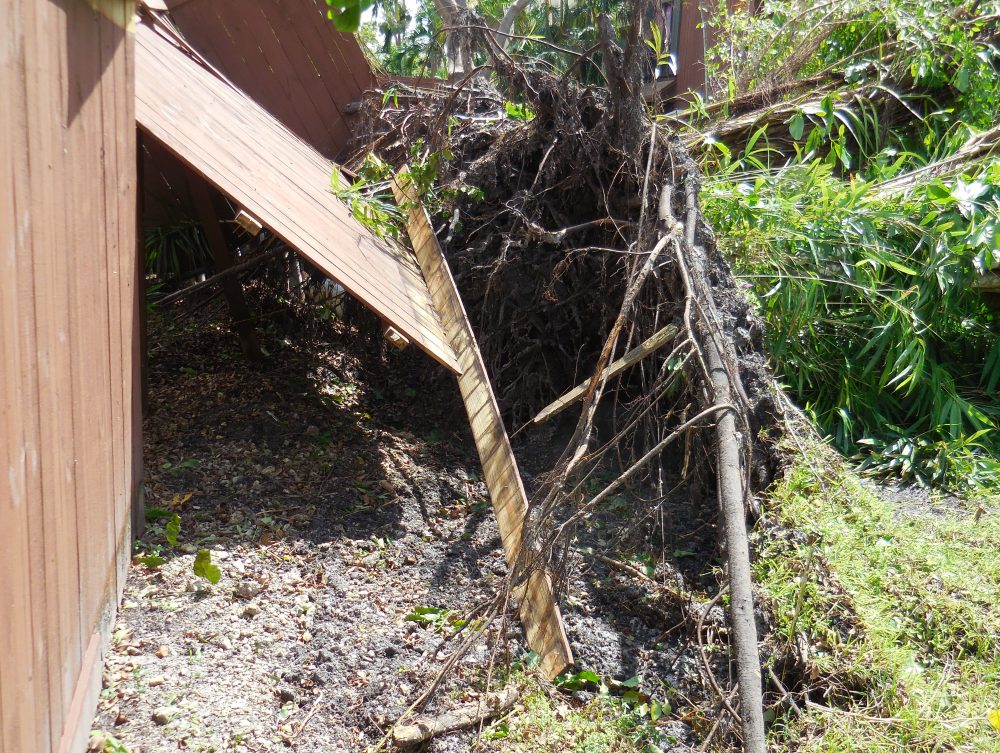
Apparently, some criminals had figured out that impersonating first responders, utility workers, and FEMA personnel could afford them easy access into people’s homes. Less than 24 hours into the aftermath and there were already reports of home invasions and residents being assaulted and robbed at gunpoint. Go figure.
Looters also came out in full force. Some of these vermin were especially bold, making no attempt to hide their criminal activity as they broke into establishments and hauled off cell phones, clothes, sneakers, and sporting goods.
A lot of these activities were filmed by local news crews that were out reporting on the storm. Police made dozens of arrests, but from all indications, many looters got away.
Lesson
Criminals don’t take time off, not even for disasters. They’re also not likely to change their ways just because the community is suffering. On the contrary, they’ll be looking for opportunities to turn the panic and confusion of the situation to their advantage.
After a crisis, they’ll be on the prowl for targets of opportunity. Your job is to make sure you don’t become one of those “easy” targets.
Your first lines of defense are to remain vigilant, always be aware of your surroundings, and then take appropriate steps to safeguard yourself and your family. Specifically, you must have a strong security and self-defense plan. Make it a point to test and rehearse your plan well in advance, to ensure that all members of your group understand what to expect and how to respond.
As you test and identify deficiencies in your plan, make adjustments and improvements. The preferred strategy is usually to avoid coming in contact with any of these individuals, since the best confrontation is the one that never happens.
To this end, don’t do anything that will call attention to you, your property, or your situation. As a last resort, always be prepared to defend yourself and your family without any outside help. This requires planning, skills and the appropriate tools to get the job done. You must always be on the alert, but this is especially true after a major disaster, when criminals will likely feel empowered to act with impunity, and law enforcement will be stretched very thin.
GASOLINE
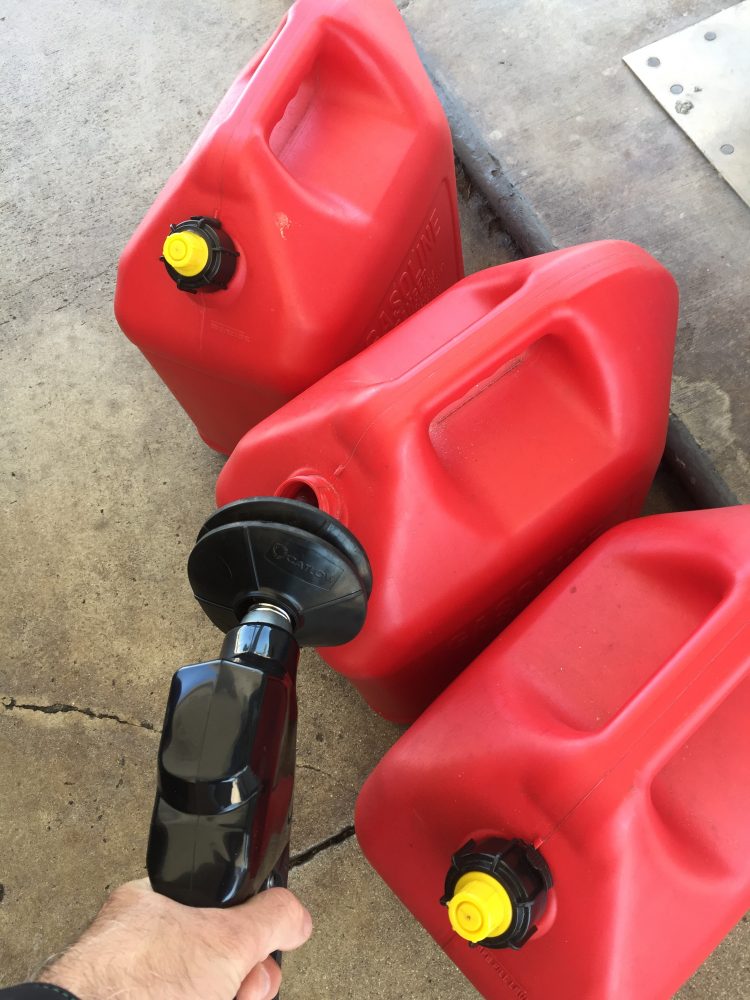
The combination of long lines and short tempers soon led to arguments, fights and, in some instances, arrests when some residents decided that pulling a weapon over an argument at a gas station was the most appropriate and prudent thing to do.
Watching these events unfold was surreal. During a disaster, it’s amazing how quickly the thin veneer of civility gets stripped away. In the days after the storm, more of the same ensued, except even more gas stations were closed. Station owners had grown tired of the Wild West atmosphere at their stations, and some hired off-duty officers and armed security guards to keep order and direct traffic flow.
Lesson
Make it a habit to fill your gas tank often. When your gas gauge approaches the 1/2 mark (3/4 for me), calmly pull into a gas station and top off the tank—it’s that easy.
The moment you suspect a crisis is heading your way, top off your tank and fill any gas containers you have. Use approved containers and do not exceed the amount of stored gas permitted by your local laws, regulations and ordinances.
You may need more gas as events unfold, but at least you won’t be on empty, and may even have a little extra. If nothing happens, just use the gas in your tank as you normally would, and utilize the extra gas as needed for your vehicle or for other purposes. Everything in life should be this simple and easy.
ROADS
In the 24 to 48 hours prior to Irma’s anticipated arrival, many in south Florida decided it was time to leave. The problem was that all the roads and highways leading out of the area were already jam-packed with other motorists who had decided to leave. This is a predictable scenario, but it still happens every time there’s a storm.
Lesson
If there is even the slightest possibility that you will need to evacuate, make sure to have (a) an evacuation plan, with primary and alternate routes, (b) supplies/gear packed and ready to go, and (c) a realistic way to leave as early as possible.
If it turns out to be a false alarm, you can easily turn around and go back home. Trying to plan a safe and effective escape route, pack supplies, and figure out where to go and how to get there at the last possible moment is a recipe for disaster.
Best-case scenario is you’ll be stuck in traffic for many hours. Worst-case scenario is you’ll be stranded on some highway, out in the open, with nowhere to seek shelter when the storm arrives. There is absolutely no good reason to be “that” guy!
THE LAST MINUTE
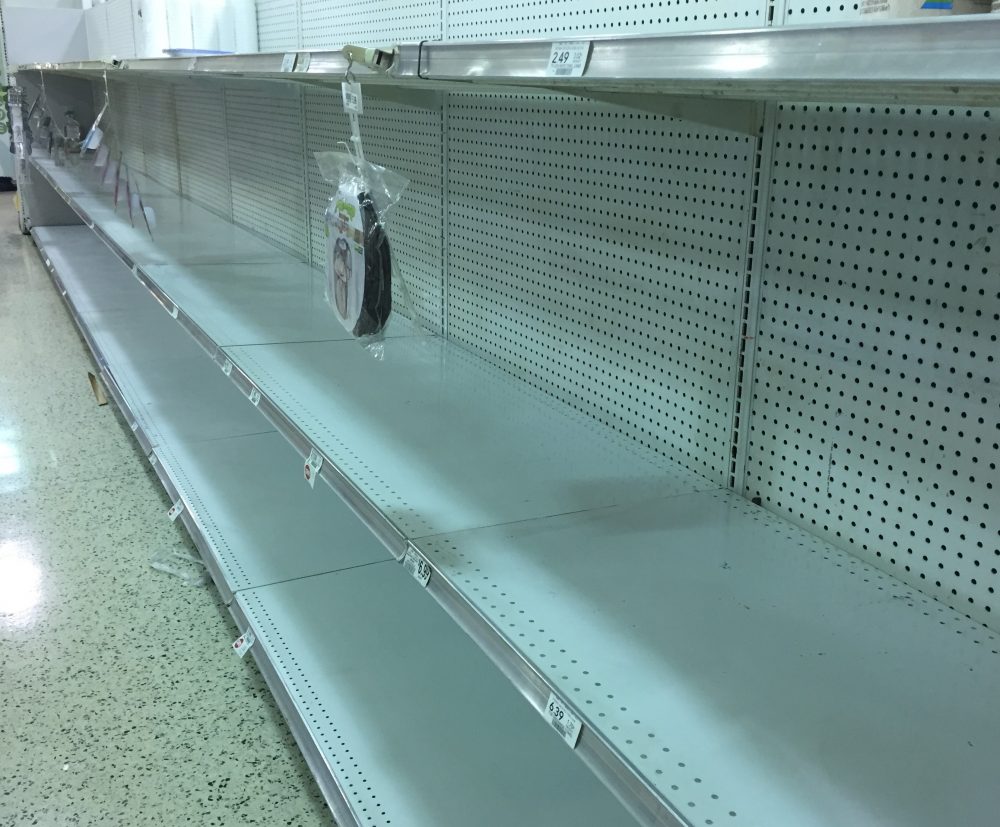
There is nothing desirable or beneficial about delaying important decisions, arrangements, or preparations until the last possible moment. Yet for the vast majority of the population, these final moments are the only time they even consider taking any action(s) to provide for their needs.
As a result, stores, supermarkets, gas stations, banks, and all manner of other businesses were overrun in the final two to three days before Irma’s arrival. I’ve seen this phenomenon many times, and it never ceases to amaze me.
Lesson
Logic and reason strongly tell us that all meaningful plans and preparations must be made far in advance of any crisis. People who prepare in advance use the final days before a crisis to do one last review and to fine-tune any minor details, not to begin their preparations.
We will never change the hearts and minds of people who simply refuse to accept responsibility for themselves or to acknowledge reality. But we can certainly do our part correctly and be prepared.
We also have no need to voluntarily place ourselves among the panicked hordes that are so common in these situations. While all this chaos plays out, you can be safely at home or quietly making your way out of town.
CURFEWS
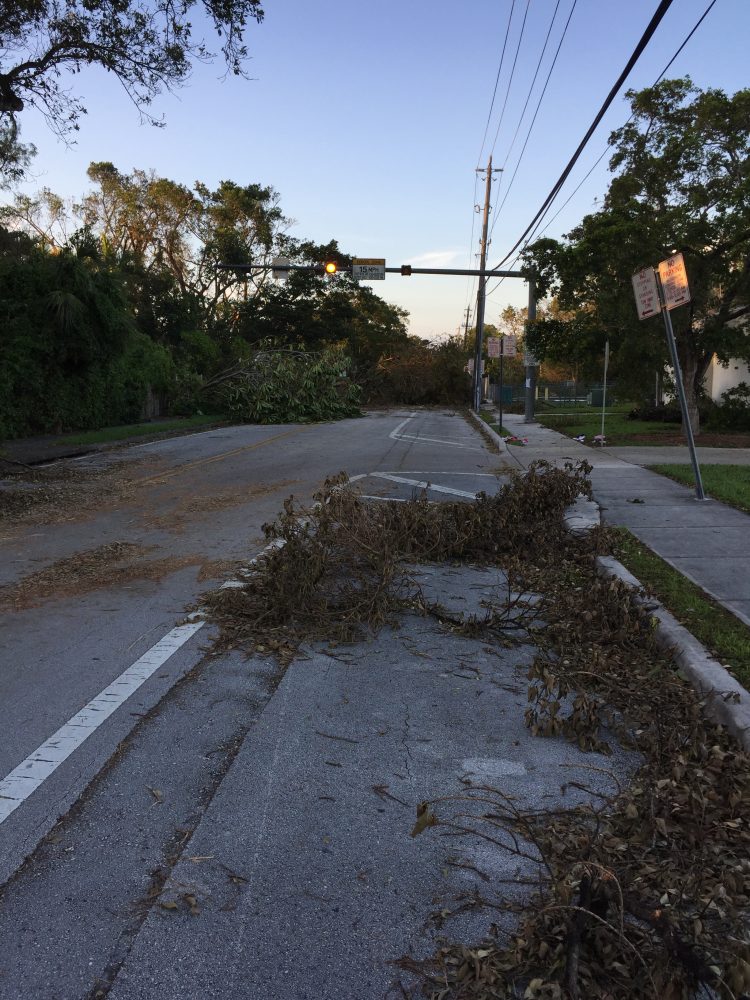
After Irma, seven south Florida cities issued curfews, generally running from 7:00PM to 7:00AM. Even truck drivers delivering emergency supplies and equipment had to carry documentation to prove who they were, who they worked for, and what business they had in the affected areas.
Lesson
Common sense dictates that areas affected by massive power outages, downed trees, non-functioning traffic signals, and storm-related criminal activity are generally not safe, especially after dark.
Most rational people stay indoors after dark, with or without a curfew, but many others take no such precautions. Curfews are sometimes necessary, but they still feel weird. Plan your activities around the curfews to avoid confrontations with law enforcement.
If you have planned carefully, there’s usually no need to be out and about during dangerous times. If you must go out, take precautions and have the necessary manpower, tools, and training to protect yourself and other members of your group.
WATER
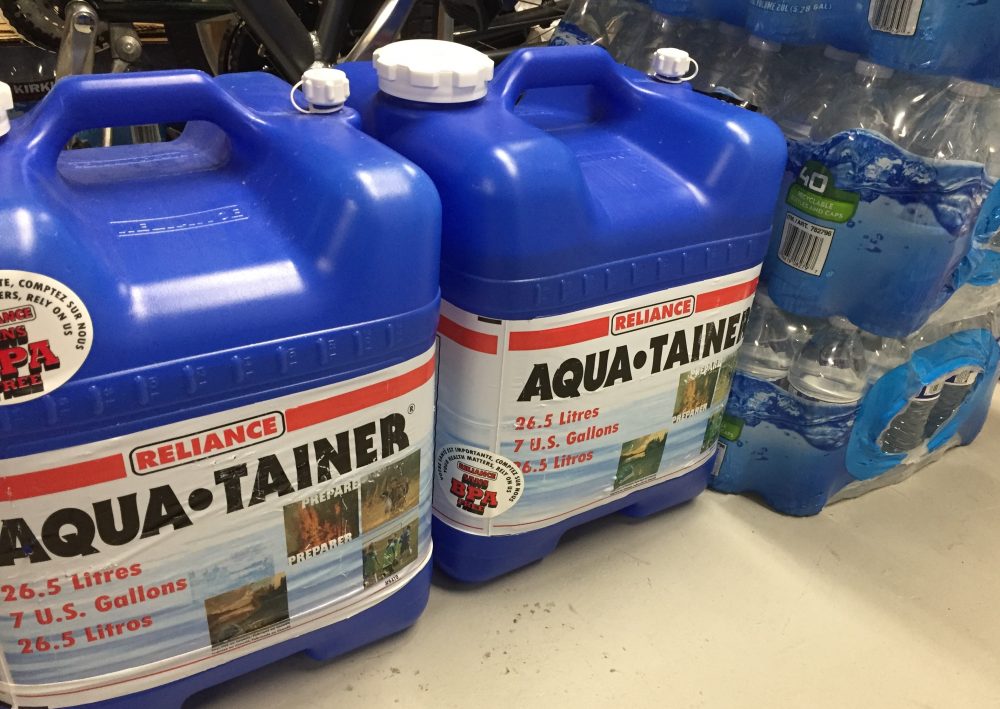
In the aftermath of Hurricane Irma, many areas in Florida were entirely without water or residents were advised to boil water obtained from the faucet before consuming it. (Note: Boiling water only kills micro-organisms. It does not remove chemicals, toxins, or other industrial waste products.
Boiling may actually concentrate those substances.) As a result, some residents were forced to travel long distances to obtain and carry water back to their homes.
Lesson
Storing water is one of the best ways to ensure your water needs before, during, and after a crisis. If bottled water is not available, you can safely store water from your tap any time before it becomes compromised.
Store your water in empty food-safe containers, buckets, sinks, bathtubs, pots and pans.
Even easier, have a water plan and store sufficient quantities of clean, fresh water year-round, since storms are not the only disaster that could compromise a local water supply.
Maintain no less than two gallons per person, per day; more in hot and humid climates.
WRAP-UP
There are no guarantees for anyone, no matter the circumstances. But having the survival essentials and a solid survival plan often gives you a definite advantage. Being prepared requires time, effort, money, and commitment to what I call the “preparedness” lifestyle.
In other words, true preparedness is a process that evolves over time, but you need to start your preparations far in advance of any disaster.
No matter how good your plans and preparations are, there are always opportunities to improve them. While we can certainly learn from our own mistakes, there is considerable value to be found by observing the mistakes made by others, and utilizing those lessons to your advantage. Stay safe and be prepared.
Richard is an urban survival consultant, writer, and firearms enthusiast. He’s the author of Surviving Doomsday: A Guide for Surviving an Urban Disaster, and The Quick Start Guide for Urban Preparedness. For the latest preparedness news and updates, connect with Richard on www.quickstartsurvival.com.



